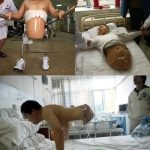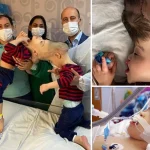James Harrison: The “Man with the Golden Arm” Who Helped Save 2.4 Million Babies
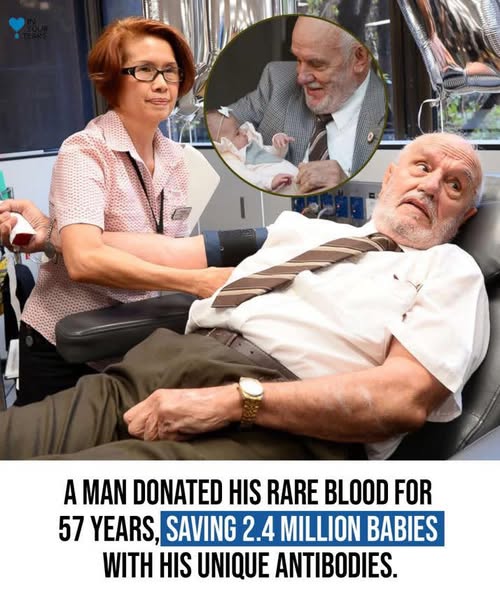
James Harrison: The “Man with the Golden Arm” Who Helped Save 2.4 Million Babies
For more than half a century, one Australian man quietly changed the course of medical history through an extraordinary act of generosity. James Harrison—widely known as the “Man with the Golden Arm”—donated blood plasma an astonishing 1,173 times over 57 years. His rare blood, carrying a unique antibody, became the foundation for Anti-D injections, a treatment that has saved millions of infants from a life-threatening condition.
Harrison’s journey as a donor began in his teenage years after he underwent major chest surgery that required transfusions from strangers. Grateful for the blood that saved his life, he vowed to give back as soon as he became eligible. When doctors later discovered that his blood contained powerful antibodies capable of preventing Rhesus disease, his donations became even more vital.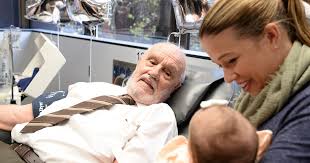
Rhesus disease occurs when a pregnant woman with Rh-negative blood develops antibodies that attack the red blood cells of her Rh-positive baby. Without treatment, the condition can lead to severe anemia, organ failure, brain damage, or infant death. Anti-D injections made from Harrison’s plasma essentially stopped this process, protecting unborn babies across Australia for decades.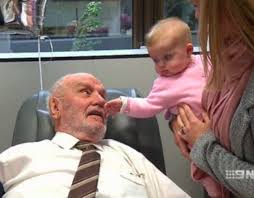
Harrison donated every week for years, adhering to strict schedules and medical guidelines to ensure a safe and continuous supply. His plasma helped create millions of Anti-D doses, and health officials estimate that more than 2.4 million Australian babies are alive today because of his rare biology and unwavering commitment.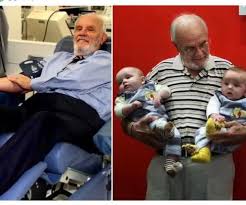
When he reached the upper age limit for donors and made his final donation, the medical community honored him for a contribution unmatched in modern healthcare. His legacy remains a powerful reminder of how one person—through consistency, compassion, and a willingness to help—can profoundly impact the world.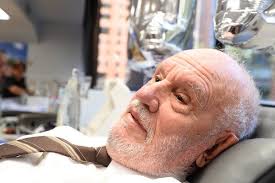
James Harrison’s story continues to inspire blood donors globally, highlighting the extraordinary public health value of rare donors and the lifesaving potential held in every donation.



